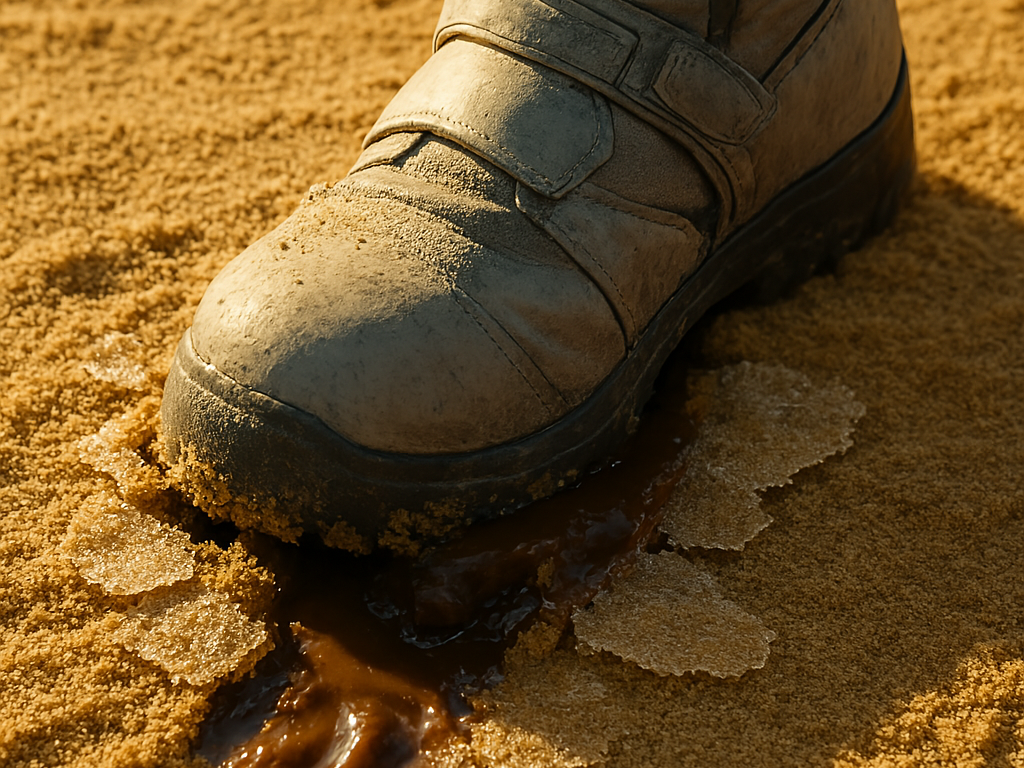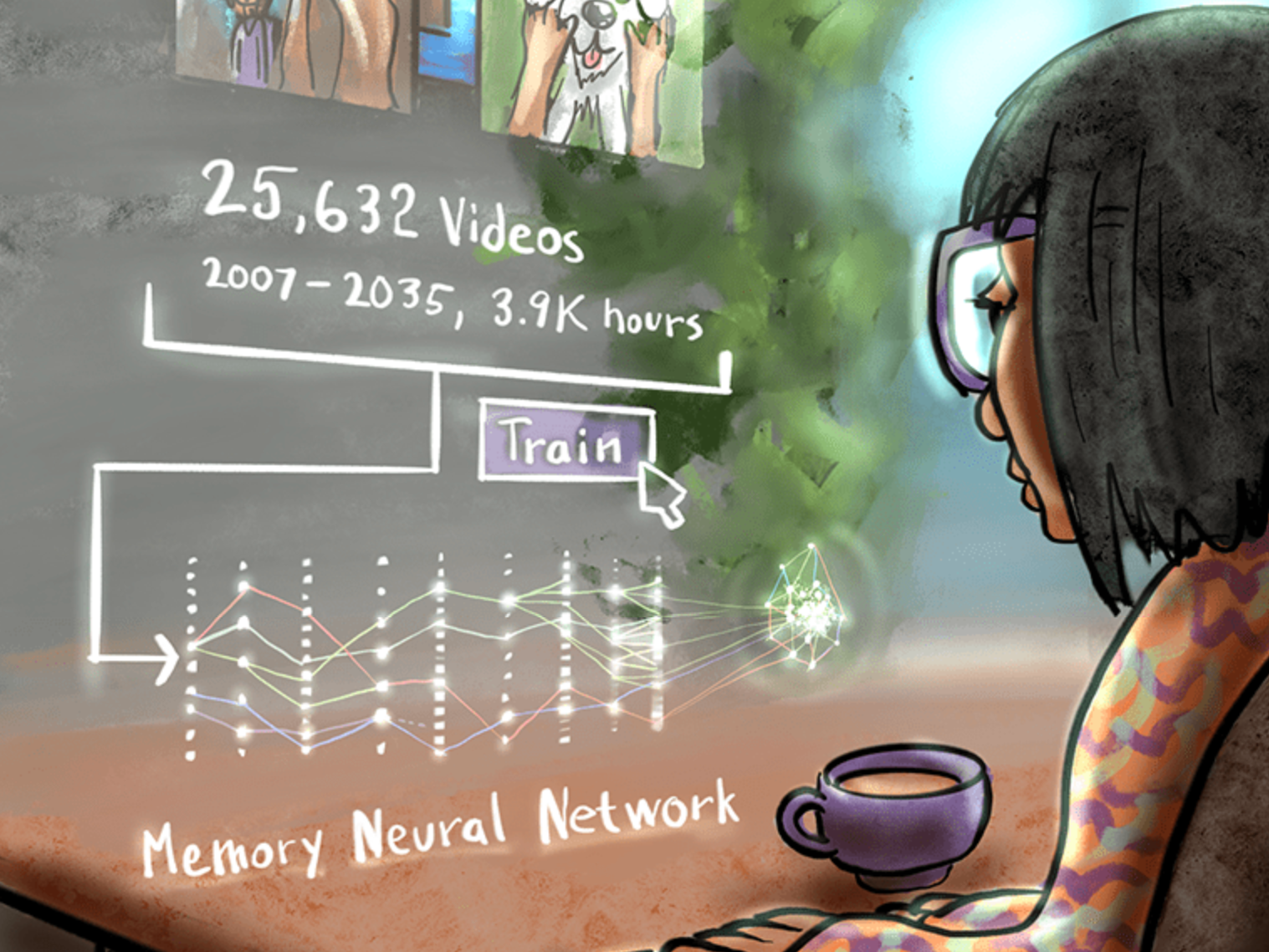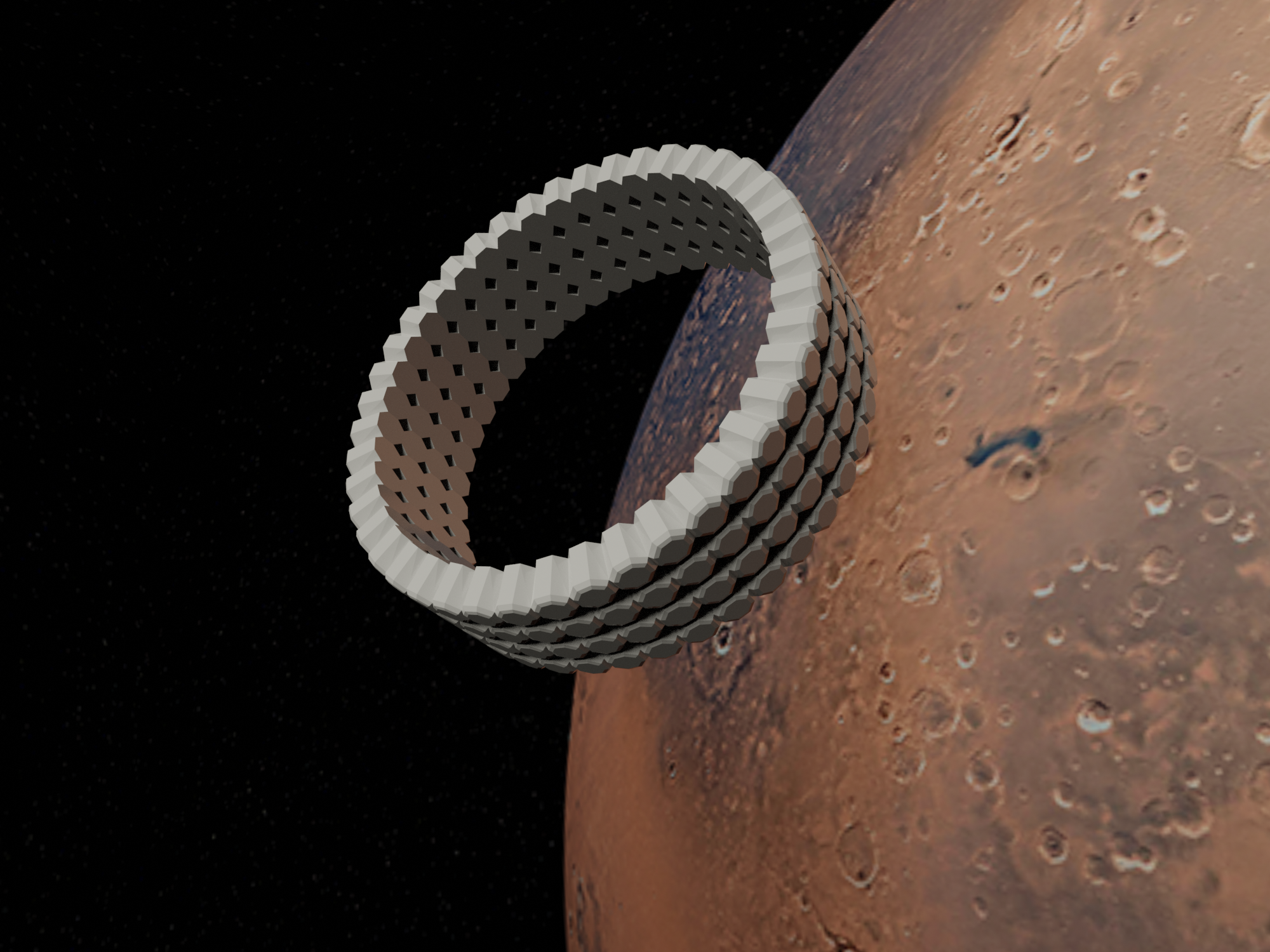Chapter 3: Habitats and Habits
Back inside Horizon Habitat (our combined lander and living module), I peel off my helmet and inhale the warm, clean air. It smells of recycled plastic and a hint of cooking spice—thanks to Valentina, who apparently started warming a meal pack while we were de-suiting. My cheeks tingle from the sudden temperature change. We spent only two hours outside, but my faceplate had grown so cold that frost rimed the edges. Now, my skin feels almost hot in comparison.
Jack helps me out of the bulky suit. With Titan’s gravity so low, the suit’s weight wasn’t a big issue outside, but it’s still a relief to shrug off the stiff arm sections and backpack. Underneath, I’m wearing a thermal under-suit, slightly damp from sweat. Titan’s cold seeps in slowly, and I hadn’t realized I was shivering until now.
Valentina, already out of her gear, hands me a steaming pouch of beef stew. “First surface meal, chica,” she grins. “Compliments of Chef Valentina. Bon appétit.”
The aroma of real food (well, rehydrated, but it’s not a protein bar) makes my stomach growl. I accept it gratefully. “You had time to cook? Did we take that long?”
He winks. “Multitasking. I can hang up my suit and boil water at the same time.” He waves a second pouch at Jack, who’s stepping out of his own EVA suit. “Jackie, got your favorite—Thai curry!”
Jack’s eyes light up. “You are a saint, Benitez.”
Commander Patel emerges from stowing his suit and clears his throat pointedly. “I assume mine’s waiting too?”
Valentina chuckles and tosses him a meal pouch. “Of course, Commander. One lentil biryani, as requested.”
Watching this exchange, I feel a surge of affection for my crew. We might be a motley bunch—different backgrounds, different personalities—but out here, over a billion kilometers from Earth, we’re family. And nothing says family like squabbling over dinner.
I sink into one of the crash couches that now double as our dining chairs and dig into the stew. It’s blissfully warm and savory. Across the small central table, Jack is already regaling us with a dramatic reenactment of Valentina’s “Great Titan Sinkhole Slip”, complete with flailing arm motions.
“…and then our brave Valentina went sploosh! right into the mud,” Jack narrates, nearly knocking over his curry pouch as he imitates the fall. “If not for Mira’s expert advice—‘watch your step’—who knows how far you’d have sunk!”
Valentina shakes her head with a smirk. “Keep laughing, flyboy. Next time you go first into the mystery muck.”
Patel, ever the straight man, chimes in dryly, “Let’s avoid any actual sinking, shall we? We’ve had a thankfully nominal landing day. Let’s keep it that way.” But he’s smiling too.
I’m only half-listening to the banter. My mind keeps drifting to the data we gathered. Beside me on the couch, my sample case holds Titan’s soil—two vials of history. I can’t wait to analyze them. In fact… I gulp the last of my stew and stand. “Anyone mind if I start running tests on the samples? I’m too excited to sit still.”
Jack shoots me a knowing look. “There she goes—Professor Alonzo, straight to the lab. We haven’t even had dessert.”
“Titan has given me all the dessert I need,” I reply, holding up the sample case. Still, I smile to soften it. “I promise I’ll join the poker game later, okay?”
“Deal,” Valentina says. “We have a lot of M&Ms to lose to me.” M&Ms are our poker chips—Valentina is currently champion after an epic tournament we had during the long cruise.
Patel nods. “Go ahead, Mira. Begin the preliminary analysis. But keep Aegis looped in and call out if you find something we all need to hear.”
“Yes, Commander.” I give a playful salute and float myself toward the tiny lab corner of our habitat. It’s really just a secured bench with a microscope, a mini-chem analyzer, and a freezer/incubator unit for sample experiments. Still, it’s my temple.
The hab is snug—about the size of a small RV. We have a central area with the table and some storage, the lab bench, a compact galley (where Valentina is now making good on promise of cocoa), and four sleeping bunks stacked two on each side. The walls are covered in instrument readouts and personal touches: a small photo of my parents and sister is Velcroed near my bunk; Jack has a poster of the L.A. Lakers and a scribbled love note from his fiancé back home; Valentina stuck a tiny Peruvian flag above her seat; and Commander Patel has a carved Ganesha statuette magneted to the life support unit—a symbol of luck. It really is a little home.
I pop open the first sample vial—the “wet sand” from our landing site—and carefully transfer a bit onto a microscope slide. Working with gloves in partial gravity is interesting; the grains don’t settle as quickly, and I have to be careful not to sneeze or anything that would send Titan dirt flying. Aegis dims the overhead lights at my station and powers up the microscope.
“Need any help, Mira?” the AI asks. Her voice is piped through a speaker above the bench, a considerate touch so I don’t have to wear an earpiece inside.
“I’ve got it, thanks.” I lean in and adjust focus. The microscope is a nice one—multiple modes including an electron microscope setting—but I start simple with optical. At 100x magnification, Titan’s soil looks like reddish-brown grit with some translucent crystals mixed in. Possibly water ice grains and tholin particles. Nothing jumps out as alive, but I remind myself these are just raw grains. If life exists, it might be microscopic or hiding in liquid niches.
Next, I run a quick chemical analysis using a tiny scoop of the sample. The mass spectrometer whirs softly. I tap my foot waiting for results, noting that my foot taps slower and lighter than it would on Earth—low gravity even makes impatience floaty.
The results flash on the screen: a complex mix of organics. Lots of carbon compounds—no surprise. I see signatures of acetylene, ethane, maybe some amino nitriles? And ammonia traces? Interesting. Also, some CO₂ and H₂O (likely from the ice content). Essentially, Titan muck equals “prebiotic soup frozen in time.” Exciting for sure, but not unexpected.
I bite my lip. Part of me is hoping for an obvious “Eureka, life!” moment, but science is seldom that kind. It will take careful analysis, maybe culturing samples at different temperatures, checking for metabolic processes, etc., to even hint at life. And that’s assuming life here resembles something we can detect easily.
I glance over at the others. Patel is writing up the day’s report on his tablet—detailing the EVA and base status to send to Earth. Jack and Valentina are playing a quick round of poker as promised, arguing over whether a straight beats a flush (for the tenth time, I swear, they always forget). It’s almost… normal. Four people in a room, passing an evening. Except our room is on Titan, and beyond the thin hull lies lethal cold and alien wonder.
I sigh and carefully prepare the second sample—the dry dune sand. Perhaps less interesting chemically, but maybe I’ll find something in difference between wet and dry areas. As I work, Aegis pipes up quietly, “Mira, you seem pensive. Are you alright?”
I smile at the AI’s concern. Over the years of travel, Aegis has become something like a friend (and counselor) to each of us. “I’m alright. Just thinking I should be more excited—I mean, I am excited—but I’m already hungry for more, you know?”
“You have always set a high bar for excitement: only alien life will satisfy,” Aegis responds wryly.
I chuckle. “Guilty. The guys are happy we landed safely and got good data. And I am too! But… I guess I won’t be truly happy until I find a microbe swimming in a Titan drop of methane.”
At this, Aegis actually gives a soft hum that resembles sympathy. “That’s a tough goal, but if anyone can find it, you can. Perhaps some music while you work?”
Before I answer, she’s already playing something gentle—ah, Debussy’s “Clair de Lune.” One of my favorites for lab work. The soft piano melody fills the small habitat, and I hear Valentina groan at the poker table. “Aegis, what is this? We were going to play rock music!”
“Multitasking—ambience for the lab and something upbeat for the gamblers. Shall I split audio channels?”
Patel waves a hand, chuckling. “It’s fine, Aegis. We can take a music break. It’s actually quite soothing.”
Jack fake-whispers to Valentina, “Careful, she’s trying to calm us so she can beat us at poker next round.” They both laugh.
I shake my head, focusing under the microscope again. The second sample shows similar grains, maybe a bit more uniform. A thought crosses my mind—what if Titanian microbes don’t look like Earth microbes at all? Could I be staring right at a clump of cells and not even know it because they’re based on completely different chemistry? The idea is daunting.
Time to try something else. I decide to set up a simple experiment that astrobiologists back on Earth suggested: see if any sample incubated at Titan conditions produces chemical changes. Essentially, feed it some known chemicals (like a bit of hydrogen gas, maybe acetylene) and see if it gets consumed. This is based on the hypothesis that Titan life, if it exists, might breathe hydrogen and eat acetylene. It’s a long shot, but we came prepared to test it.
I load a small chamber with some of the damp soil. Then I flood it with a mix of Titan atmospheric gas (which is mostly nitrogen with methane) plus a controlled amount of hydrogen. I keep it at around -180°C to mimic outside. If anything in there is alive and metabolizing, perhaps it will use hydrogen and we’d see the hydrogen level drop or methane produce or something. It’s essentially a mini Titan environment in a bottle.
This will take time, so I leave the experiment running and secure the chamber. I glance at the chronometer—21:32 ship time. According to schedule, we should sleep soon, trying to keep roughly a 24-hour Earth cycle even though Titan’s day is 16 Earth days long. Our bodies can’t handle such long days, so we create our own rhythm with artificial lights. Outside, Titan doesn’t care—it will be this dusky daylight for many more Earth hours before a long, long night.
Patel finishes the report and transmits it via our comm relay orbiting overhead. It’ll be a couple of hours before Earth even gets it. By the time any congrats or news come back, we’ll be sleeping. It’s strange to think how distant everyone is. No live chat with family, no immediate mission control feedback. We truly have to run things mostly on our own. Good thing Aegis has all the knowledge of Earth’s databases to back us up.
We tidy up and prepare for “night.” Valentina insists on a quick round of music trivia (which she inevitably wins—her encyclopedic knowledge of 1980s rock is frightening). Jack checks the habitat systems one more time—a ritual he does every night, tinkering with anything slightly off-nominal. Patel leads a brief “end of sol” meeting (we still say “sol” from Mars mission jargon) where we discuss tomorrow’s plan: likely a longer excursion toward that lake, deploying a floating sensor there, and maybe drilling into the ice ground to see if there’s liquid beneath. The thought makes me jittery with anticipation.
Before turning in, I step to the small porthole window above my bunk. The view is mostly of the darkening sky; Titan’s eternal clouds reflect a faint orange glow. But on the horizon, I can see where the Sun must be setting because the haze is a deeper gold there. It will dip below the horizon soon, starting an eight-day-long night. Perhaps tomorrow or next we will experience true darkness on Titan, and see what emerges.
Jack comes up beside me, a mug of cocoa in hand. “Penny for your thoughts?” he asks quietly.
I smile, not taking my eyes off the sky. “I was wondering if we’ll see stars when it’s fully dark. Or Saturn’s rings shining.”
He sips from his mug. “From what we know, probably not. The haze will block stars. Maybe Saturn might appear as a dim glow if the angle is right.”
I nod. Figures—Titan always jealously guards its views. “Still, maybe we’ll get to see something. I read that sometimes there are breaks in the cloud, and you could catch a sparkle of sunlight on a lake or even a faint outline of Saturn’s disk.”
Jack tilts his head, looking at me. “You really love this, don’t you? All of this.”
I turn to meet his gaze. In the low interior light, his face is gentle, curious. “I do,” I admit. “Ever since I was little, I dreamed of finding life out here. Titan was always the big mystery—a cold, distant world that might just have all the ingredients for something alive. And now I’m here, and…” I trail off, struggling to articulate the mixture of joy and yearning in my chest.
“And you won’t rest until you find it,” he finishes softly.
“Am I that obvious?” I chuckle, a bit self-conscious.
Jack smiles. “Mira, on the ride over, you gave us hour-long breakdowns of Titan’s atmospheric chemistry, ranted about methanogenic life, and practically bounced off the walls whenever we ran a simulation. Yeah, it’s obvious. But it’s good. It’s why you’re here.”
I feel my cheeks warm—partially embarrassment, partially flattered. I brush a stray lock of hair behind my ear. “I hope I don’t drive you all crazy before the mission’s done.”
He nudges my shoulder amicably. “Nah. We’d be lost without our resident Titan nerd.” A playful grin, then he adds, “It’s inspiring, honestly. To see someone so passionate. Makes the rest of us step up our game.”
That draws a warm laugh from me. “Thanks, I think.” Our eyes meet, and there’s a comfortable silence. In his gaze, I sense understanding and support that goes beyond just professional courtesy. My heart gives a little flutter—unexpected but not unwelcome.
Before either of us can say something more, Aegis’s voice softly announces: “Sleep cycle recommended, crew. 10-minute warning for lights dimming.” The AI, ever tactful, doesn’t mention our elevated heart rates she’s surely monitoring.
Jack downs the last of his cocoa. “Alright, alright, Mom,” he jokes to Aegis. To me he says, “Time to catch some shut-eye. Big day tomorrow.”
“Yeah,” I reply, suddenly feeling the fatigue in my bones. Emotional excitement can tire you out as much as physical labor. “Good night, Jack.”
“Good night, Mira.” He lingers a second, then heads off to his bunk, flashing me one last friendly smile. I climb into mine above, zipping into the sleeping bag fixed to the wall. Around me, the lights dim to a faint glow—our artificial “moonlight.”
I close my eyes, replaying the day’s events: the descent, stepping onto Titan, that magnificent, alien landscape. We’re really here, I think drowsily. The first humans on Titan. And tomorrow, we push further. In my mind, I see again the dark shoreline of the methane lake and feel a surge of anticipation. What secrets lie beneath that tranquil surface? Could microscopic creatures be thriving in that liquid methane, living slow chemical lives in the cold? Or perhaps evidence of life might be hidden in the icy ground, waiting for us to dig it up.
My last waking thought is a gentle hope: If you’re here, we’ll find you. And with that promise to Titan’s mysteries, I drift into a deep, contented sleep.
End of chapter 3



